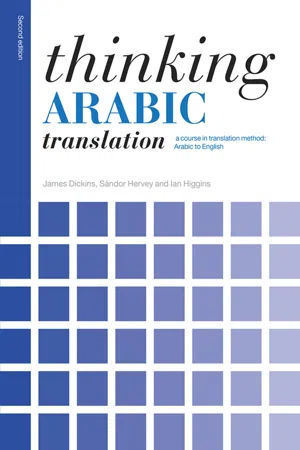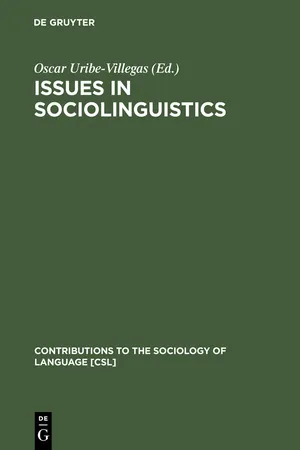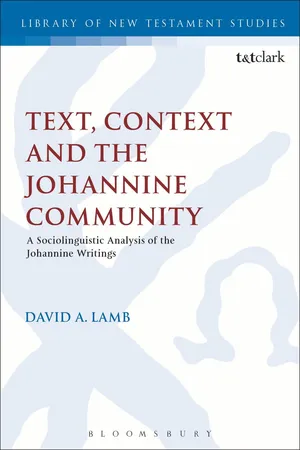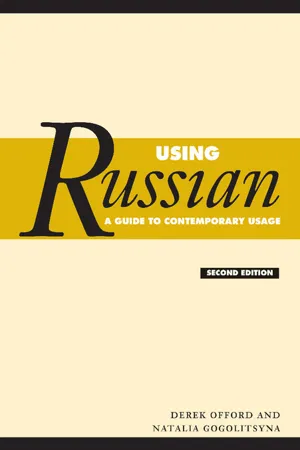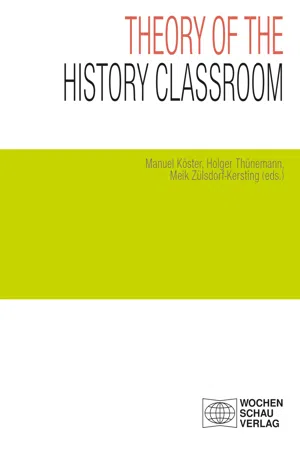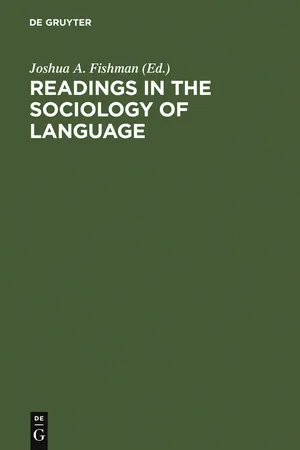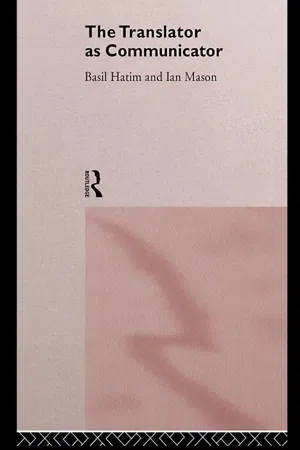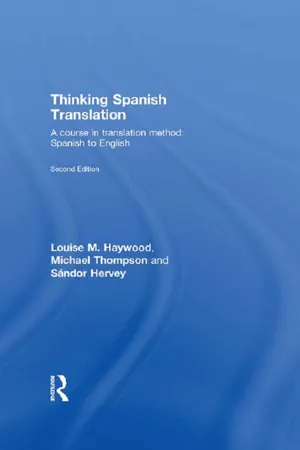Languages & Linguistics
Neutral Register
Neutral register refers to a style of language that is neither formal nor informal. It is often used in everyday communication and is considered appropriate for most situations. In this register, language is clear, direct, and free from slang or overly formal expressions.
Written by Perlego with AI-assistance
Related key terms
1 of 5
9 Key excerpts on "Neutral Register"
- eBook - PDF
Thinking Arabic Translation
A Course in Translation Method: Arabic to English
- James Dickins, Sándor Hervey, Ian Higgins(Authors)
- 2016(Publication Date)
- Routledge(Publisher)
15.2 Register ‘Register’ is a term used in so many different ways that it can be positively mis-leading. It is possible to isolate at least four theoretically distinct types of register that might be used in the analytic description of language (Hervey 1992). For our purposes, however, these fall into two types of register that it is methodologically useful for translators to distinguish. 15.2.1 Tonal register The fi rst is what we shall call ‘tonal register’. This is the feature of linguistic expression that carries affective meaning, which we examined in Section 8.4. That is, it is the tone that the speaker takes – vulgar, familiar, polite, formal, etc. The affective meaning of a feature of tonal register is conveyed by a more or less deliberate choice of one out of a range of expressions capable of conveying a given literal message – compare, for example, ﺖﻤﺼﻟا ءﺎﺟﺮﻟا as opposed to ﺖﻜﺳا or سﺮﺧا or in English ‘Would you mind being quiet’ or ‘Silence please’ as opposed to ‘Shut up!’. As these examples suggest, the effect of tonal registers on listen-ers is something for which speakers can be held responsible, in so far as they are deliberately being obscene, polite, etc. In handling tonal register, it is clearly important for the translator to accurately assess where the ST expression comes on the SL ‘politeness scale’ and to render it with an expression as close as possible to a corresponding TL degree of politeness. But it is not enough just to have a repertoire of expressions capable of injecting various affective meanings into a given literal message. Equally important is the situation in which the expression is used: different sorts of social transactions – preaching in a mosque or in a church, defending a client in court, selling a car to a male customer, etc. - eBook - PDF
- Oscar Uribe-Villegas(Author)
- 2014(Publication Date)
- De Gruyter Mouton(Publisher)
Indeed it is by their register range, and not by their linguistic features, that 'developed' languages are recognised and distinguished from 'undeveloped' ones (e.g., Ferguson, 1968). 198 Jean Ure and Jeffrey Ellis Nevertheless, although the fact of register and its importance, for example, in language development, is recognised now by many workers in the sociolinguistic field, investigations are still only beginning: small parts only of a very few languages have been examined, and a great deal remains to be done on the nature of the relation between language patterning and social reality. In the following paper we give a brief account of some of the methods that may be employed and some preliminary investigations. Register and language A register is a subdivision of a given language, a 'situational variety' constituted by a selection of choices from among the total linguistic options offered by that specific language. Some people use only one language on all occasions and have all their registers in one language, but there are many communities which draw on more than one language for their different purposes, and in that case a member of that com-munity will have different registers in different languages. It was in fact in relation to bilingualism that register was first observed (Gum-perz, 1959; Ferguson, 1958) and named (Reid, 1956). (The term register was introduced by Reid; Gumperz and many American lin-guists and anthropologists use the term code when discussing the same phenomena.) Thus a given speaker's idiolect may consist of a repertory of registers drawn all from one language or from entirely different lan-guages and/or from dialects of the same language. Different dialects of the same language may include different local varieties of the same language and also different social varieties (Ellis, 1965). Register, as we have said, is a norm that obtains in a particular language community. - eBook - PDF
Text, Context and the Johannine Community
A Sociolinguistic Analysis of the Johannine Writings
- David A. Lamb(Author)
- 2014(Publication Date)
- T&T Clark(Publisher)
29 Halliday de ¿ nes dialect as ‘variety according to the user’ and register as ‘variety according to the use’. 30 Halliday’s understanding of register will be con-sidered in more detail below, alongside that of the American socio-linguist Douglas Biber. For both these scholars, the fundamental aspect of the register of a given text is that it carries with it signi ¿ cant informa-tion about its social context. 31 Indeed, ‘[t]he sensitivity of language to its 26 Crystal, Dictionary of Linguistics and Phonetics , p.409. 27 ‘Registers…when they are distinguished from styles, tend to be associated with particular groups of people or sometimes speci ¿ c situations of use. Journalese, babytalk, legalese, the language of auctioneers, race-callers, and sports commen-tators, the language of airline pilots, criminals, ¿ nanciers, politicians and disc jockeys, the language of the courtroom and the classroom, could all be considered examples of different registers. The term “register” here describes the language of groups of people with common interests or jobs, or the language used in situations associated with such groups.’ Janet Holmes, An Introduction to Sociolinguistics , (Harlow: Pearson Education, 2nd ed., 2001), p.246. Similarly, Wardhaugh states, ‘Registers are sets of language items associated with discrete occupational or social groups. Surgeons, airline pilots, bank managers, sales clerks, jazz fans, and pimps employ different registers’. Wardhaugh, Introduction to Sociolinguistics , p.51. 28 Ferguson draws a parallel between the systematic analysis of register varia-tions and ‘the extensive publications in German on Fachsprachen “occupational languages” and in English on “Language for Special Purposes” (mostly on commer-cial and scienti ¿ c registers of English)’. Ferguson, ‘Dialect, Register and Genre’, p.16. 29 Crystal, Dictionary of Linguistics and Phonetics , p.409. - eBook - ePub
- Gerard Van Herk(Author)
- 2012(Publication Date)
- Wiley-Blackwell(Publisher)
response . All utterances (from a greeting to a textbook) are addressed to somebody, and language results from a “reciprocal relationship between speaker and listener, addresser and addressee” (Voloshinov 1973/1929). People respond to others and expect a response in return: “I try to act in accordance with the response I anticipate” (Bakhtin 1986: 95).Genre, Register, Jargon- Languages involve heteroglossia , sometimes translated as “double voicing.” Any language at any point is massively internally diverse, full of jargons and dialects, which act to flavor all components of the language: “there are no ‘neutral’ words and forms – words and forms that can belong to ‘no one’; language has been completely taken over, shot through with intentions and accents … All words have the ‘taste’ of a profession, a genre, a tendency, a party, a particular work, a particular person, a generation, an age group, the day and hour. Each word tastes of the context and contexts in which is has lived its socially charged life; all words and forms are populated by intentions” (Bakhtin 1981: 293).
This last paragraph in particular seems to nail the issue of style and speaker identity performance. Every bit of language has social meaning derived from how it has been used and interpreted in the past, so whenever speakers make linguistic choices, they’re drawing on all those social meanings to create their own mashup, which they expect to trigger a social interpretation in their listeners.Style is a shifty thing – we’re always fine-tuning our output to our interlocutors and our purposes. But we also vary our language in ways that are not so split-second. The term register , like style, describes a type of speech, but it is more closely associated with a specific speech situation, often related to an occupation or particular pastime, so we can speak of a legal register or ritual language register or sports announcer register . People often speak of recipe register , although we can also think of recipe as a genre - eBook - PDF
Using Russian
A Guide to Contemporary Usage
- Derek Offord(Author)
- 2005(Publication Date)
- Cambridge University Press(Publisher)
8 1.3 Registers As for field, language is affected by subject-matter in an obvious way, inasmuch as fields of activity and branches of knowledge have their special terminology, for example, political, philosophical, scientific, medical, musical, literary, sporting, professional and so forth. However, the effect of field on language may go further than terminology. Groups have distinctive ways of expressing themselves: doctors, for example, are likely to describe patients’ symptoms in language altogether different from that used by patients themselves. Finally, regarding situation, one’s mode of expression may be affected by the nature of the relationship that exists between the user and the person or people with whom he or she is communicating. Language is likely to vary according to such factors as whether one is speaking, for example, to one’s elders (with any one of a range of nuances from respect, deference, sympathy or affection to condescension or intolerance), to children (lovingly, reproachfully, sternly), to a superior or junior at work, or to an intimate or a stranger. 1.3 Registers The varieties of language that result from the interaction of the factors described in 1.2 represent stylistic levels which, in common with authors of other books in this series, we shall term registers. 3 Although the number of registers that may be identified is quite large, for the purposes of this book a scale will be used on which three main registers are marked (low, neutral and high). These registers will be referred to throughout the book as R1, R2 and R3, respectively. Beyond the first of these registers lie demotic speech ( 1.3.2 ) and vulgar language ( 5.6 ) and within R3 lie various functional styles ( функционa ´ льныe сти ´ ли ) which will be classified here as scientific or academic style, official, legal or business style, and the styles of journalism and political debate ( 1.3.4 ). - eBook - PDF
- Manuel Köster, Holger Thünemann, Meik Zülsdorf-Kersting(Authors)
- 2022(Publication Date)
- Wochenschau Verlag(Publisher)
In the following, we examine the registers most relevant to history in the classroom . We draw these from different, largely unconnected research contexts and branches of historiography, education and linguistics . These different disci-plinary approaches (with their own traditions and identities) have not yet been cross-referenced systematically and analytically . While the discourses involved are not always easy to combine, attempting to do so sheds new light on the lin-guistic dimensions of history in the classroom, which to date have at best been examined in isolation . 7.2.1 Casual register Casual register is the range of standard language used in everyday communica-tion (as opposed to “educated” English, technical register or specific language used e . g . by young people; cf . Glück 2004, 31) . Colloquial language is often described as the main variety of casual register because it is assumed to be typi-cal of specific speech situations, rather than determined by social class (ibid .) . Colloquial language is primarily spoken – although it is used to communicate online and through messaging services – and hence mainly a “speech form of immediate contact” (ibid ., 757) . In his research into the processes involved in acquiring a second language, Jim Cummins (2004) distinguishes basic interpersonal communication skills (BICS), used to communicate in situations that are cognitively less demanding and strongly embedded in specific contexts, from cognitive academic language pro-ficiency (CALP) . The latter is required in cognitively sophisticated communica-tion where little reference is made to specific contexts (cf . Berendes et al . 2013, 20; Schmölzer-Eibinger 2013, 27) . Simply put, BICS enables communication in casual register, while CALP enables discourse in academic register . 7 Cf . “double contingency” ( → History in the classroom, 28; → Emotions, 122) and the three “improbabilities of successful communication” ( → Media, 157) . - eBook - PDF
- Joshua A. Fishman(Author)
- 2012(Publication Date)
- De Gruyter Mouton(Publisher)
If we failed to note these differences of register, we should be ignoring an important aspect of the nature and functioning of language. Our descriptions of languages would be inaccurate and our attempts to teach them to for-eigners made vastly more difficult. It is by their formal properties that registers are defined. If two sam-ples of language activity from what, on non-linguistic grounds, could be considered different situation-types show no differences in grammar or 152 M.A.K. Halliday, Angus Mcintosh, and Peter Strevens lexis, they are assigned to one and the same register: for the purpose of the description of the language there is only one situation-type here, not two. For this reason a large amount of linguistic analysis is required before registers can be identified and described. It is one thing to make a general description of English, accounting, to a given degree of deli-cacy, for all the features found in some or other variety of the language. Most native speakers will agree on what is and what is not possible, and the areas of disagreement are marginal. It is quite another thing to find out the special characteristics of a given register: to describe for example the language of consultations between doctor and patient in the surgery. For such a purpose very large samples of textual material are needed. Moreover much of the language activity that needs to be studied takes place in situations where it is practically impossible to make tape record-ings. It is not surprising, therefore, that up to now we know very little about the various registers of spoken English. Even studies of the written language have only recently begun to be made from this point of view. For this reason we are not yet in a position to talk accurately about registers; there is much work to be done before the concept is capable of detailed application. - eBook - ePub
- Basil Hatim, Ian Mason(Authors)
- 2005(Publication Date)
- Routledge(Publisher)
Pygmalion which we have consulted adopts a solution of the type of version 3 above: a combination of classical and vernacular to render the formal and informal parts of the text. But, as we shall demonstrate in the following critique, none of the three types of approach seems adequately to address the real issues. The problem is that a scale of categories (of formality in this case) which works for English is naively imposed on languages in which it may not necessarily be applicable. In the context of Arabic, to borrow the scale of formality from English and use it uncritically would inevitably entail the erroneous assumption that categories such as classical/vernacular always correlate with standard/non-standard English, on the one hand, and with formal/ informal speech, on the other. What is suspect in this kind of approach to language variation is not only the unconstrained positing of correlations, but also, and perhaps more significantly, the perpetuation of the notion that varieties such as RP and cockney or classical and vernacular Arabic are mere catalogues of static features, to be called up mechanistically with little or no regard for what is actually going on in communication.TOWARDS A MORE WORKABLE SOLUTION
As will become clearer in the course of the following discussion, simple solutions to complex problems such as dialectal fluctuation in Shaw’s Pygmalion invariably run the risk of glossing over a basic text linguistic principle governing language variation in general. This is the requirement that, whatever options are selected to uphold the register membership of a text, they should always be adequately motivated. Register is a configuration of features which reflect the ways in which a given language user puts his or her language to use in a purposeful manner. This intentionality acquires its communicative thrust when intertextuality comes into play and utterances become signs (socio-textual/ rhetorical or socio-cultural/semantic)— cf. Chapter 2 , where these notions are explained.We are all familiar with the way advertisers, for example, take meticulous care in their choice of what kind of speaker or professional activity is appropriate to given settings for selling certain products. It would indeed be bizarre if a speaker of southern British English were used to sell the traditional qualities of Yorkshire bitter or if a strongly-marked regional accent were used to sell pharmaceutical products. Advertising copy-writers make sure that this does not happen. What is involved here is precisely an advertiser’s attempt at being, perhaps intuitively, in tune with the way texts develop in natural settings. A given register thus takes us beyond the geographical provenance of, say, the beer drinker or the consumer of pharmaceutical products to questions of identity (i.e. self-image). Register consequently carries all kinds of intended meanings and thus functions as the repository of signs, whose range of semantic as well as rhetorical values is intuitively recognized by all textually competent speakers of a language. - eBook - ePub
Thinking Spanish Translation
A Course in Translation Method: Spanish to English
- Michael Thompson, Louise Haywood, Sándor Hervey(Authors)
- 2013(Publication Date)
- Routledge(Publisher)
Tonal register is usually the most conscious of the four modes of language variation (though it is not uncommon for listeners and readers to perceive tonal implications unintended by speakers and writers), modulating effects of dialect, sociolect and social register in ways that indicate subjective attitudes or an intention to generate emotional responses. Whatever the social situation or genre, expressive choices can be made that suggest affability or aggressiveness, levity or solemnity, sincerity or irony, exultation or despair, objectivity or subjectivity, pomposity or directness. As with social register, the variables occur on all levels of analysis (phonic, grammatical and lexical) and are nonverbal as well as verbal. Markers of tonal register can be even more subtle and hard to pin down than indicators of social register, at times consisting only of intonation or emphasis, or perhaps a cumulative pattern of affective and associative meanings.Tonal and social register overlap in practice and may be expressed by the same kinds of linguistic features, but the two constitute different ways of looking at communication. For example, forms of language signalling deferential social register and a genuine desire to be polite and respectful may often go together, yet to see that they are distinct phenomena one only has to imagine the following formula spoken with intonation suggesting irony, or in the context of a vicious attack on the addressee: ‘Le hablo al señor senador con todo el respeto debido a su augusta persona …’ Or to take a contrasting example, the extensive use of slang and expletives may function as a marker of social register (informal situation or low socio-economic status of the speaker) and as a marker of tonal register (friendliness or aggression, desire to be accepted or to offend).For further illustration of the relationship between social and tonal register, let us return to the extract from Tiempo de silencio
Index pages curate the most relevant extracts from our library of academic textbooks. They’ve been created using an in-house natural language model (NLM), each adding context and meaning to key research topics.
